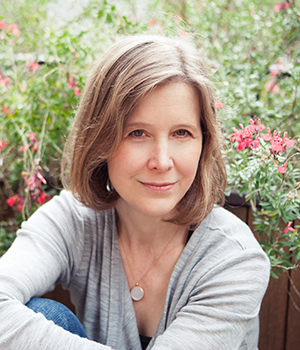Books |
Ann Patchett: Commonwealth
By
Published: Sep 25, 2016
Category:
Fiction
Ann Patchett is fiction’s current heartthrob. She’s written books that have literary merit and commercial appeal — “Bel Canto” sold a million copies and has been translated into 30 languages. [To buy the paperback of “Bel Canto” from Amazon, click here. For the Kindle edition, click here.]
In 2011, she and a friend opened Parnassus Books, a much needed independent bookstore in Nashville. On her website, she does much more than promote her store and her books. And her new novel, “Commonwealth,” has received rapturous reviews and best-seller status — it’s currently #1 on the New York Times list of fiction bestsellers. [To buy the book of “Commonwealth” from Amazon, click here. For the Kindle edition, click here.]
“Commonwealth” begins with Bert Cousins, a deputy district attorney, showing up at Franny Keating’s christening party in Torrance, California with a bottle of gin. Bert wasn’t invited. But he has three small children and a pregnant wife at home, and here he is with a bottle that changes everything — a few pages and several drinks into the novel, he kisses Franny’s mother.
Soon enough two marriages will end, and six children will be separated like pool balls at the start of a game. Only it’s not a game — it’s the creation of a blended family, a radical life change. Five decades and 300 pages later, Franny will have the last word.
“All of the books I write are about society building,” Patchett says.
Yes, but this one is different — it’s close to memoir:
My parents had two girls and they got divorced, and my mother married somebody with two boys and two girls and we moved across country — so there you go. It’s just a way in which I laid the chess board out, with the characters that represented people in my life. But things that happened in the book did not happen in my own family. The emotional content is very close to my own life.
It’s common for young writers to mine their own experience. This is Patchett’s seventh novel. Why now?
Every single novel, this is the story that I write. A group of strangers are thrown together by some circumstance and form some society. It’s “Bel Canto.” It’s “State of Wonder.” It’s all of them. I’m really tired of it. I feel like I’m writing this book over and over again now because I’m being so careful not to write about us. Now, here I am, I’m 50 years old, and I just want to have access to my own life. I don’t want to say, I can’t go here or go there. As an artist, it’s really important to my growth to be able to do this.
The word “artist” is a tell. It means that Patchett sees herself as more than a storyteller. You may count on this: in a book by an artist, the writer’s style will be challenging. It certainly is in “Commonwealth.” Patchett is terrific at close observation: “DAs were the guys who smoked your cigarettes because they were trying to quit.” She can drop wisdom into the middle of a paragraph: “Fix was starting to see that this was the way life worked once you got older and the kids came, there wasn’t as much time as you thought there was going to be.” And she’s acute about details: “You could see just a trace of her daughter there, the way she held her shoulders back, the length of her neck. It was a crime what time did to women.”
But in Chapter 2, Patchett jumps ahead in time. Now Franny’s dad is old, cancer-ridden, sharing old stories. Then we’re decades back, with two marriages ended and a new couple about to drive to a new life in Virginia. And then Franny’s in her 20s, a cocktail waitress and law school dropout, serving drinks in a Chicago bar to Leon Posen, the famous novelist. And then…. but you see the problem. Six kids, two marriages, 52 years, 2 countries — you could use a scorecard. And, if you’re me, you can skim. And, although it’s heresy, skip
A further complication. Franny tells her family stories to Posen, who makes them the centerpiece of a hugely successful novel called “Commonwealth.” What’s it about?
“It was about the inestimable burden of their lives: the work, the houses, the friendships, the marriages, the children, as if all the things they’d wanted and worked for had cemented the impossibility of any sort of happiness.”
A great subject. A theme known to many of us. And theme theme, more or less, of Patchett’s novel.
The more I write fiction, the more I think: Fiction? It’s all memoir — and the trick to great fiction that’s not a thriller or sci-fi or another rigid genre is to digest your life experience, disguise it, and turn it into a story that others can connect to. For most of “Commonwealth,” Ann Patchett does exactly that.


